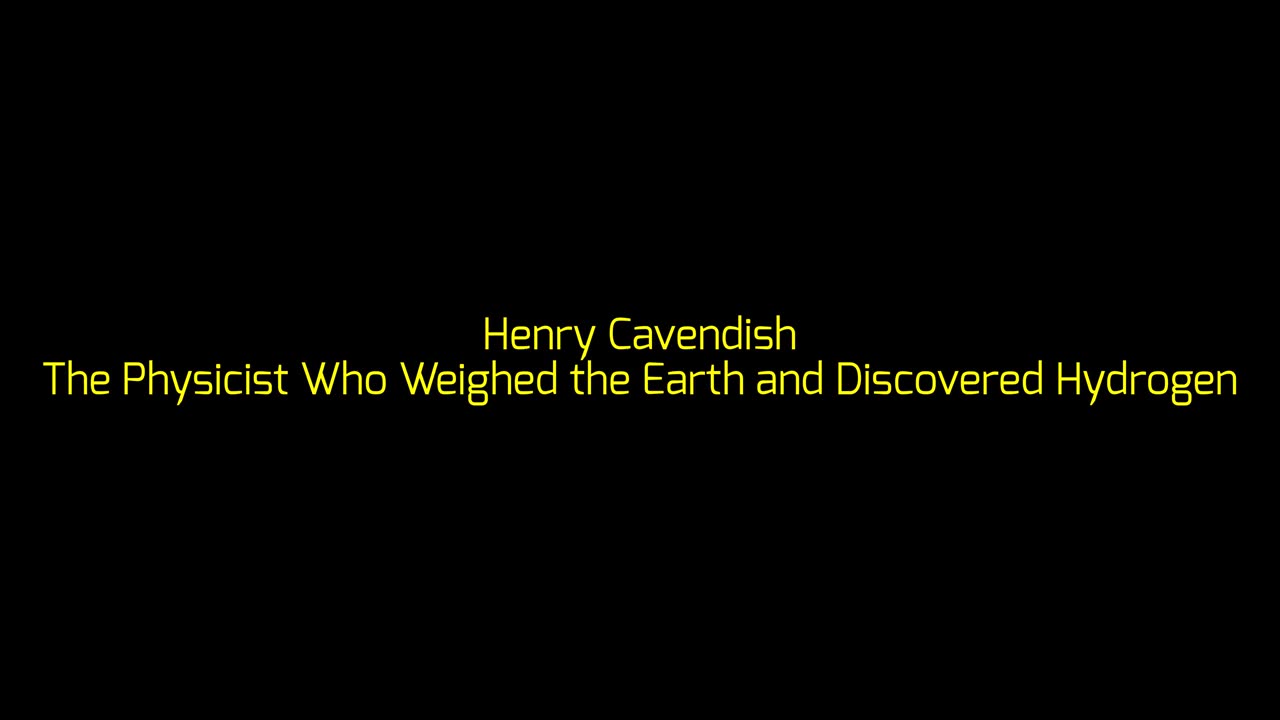Premium Only Content

Henry Cavendish: The Physicist Who Weighed the Earth and Discovered Hydrogen
On October tenth, seventeen thirty-one, Henry Cavendish was born in Nice, France, into a British aristocratic family. He was a physicist and chemist, and his academic field was experimental physics and chemistry, with a particular focus on gases and fundamental forces.
Cavendish was an exceptionally sharp and methodical experimenter, but also a notoriously shy and introverted person. His two greatest contributions to science are, however, of fundamental importance. In chemistry, he was the first to recognize hydrogen as a distinct element, which he called "inflammable air," and he calculated its mass with admirable accuracy. In physics, in seventeen ninety-seven, he conducted what is now known as the Cavendish experiment. Using a torsion balance, he measured the weak gravitational attraction between lead spheres. Through this, he could for the first time calculate the mass and density of the Earth with great precision – he weighed the Earth. This groundbreaking experiment also laid the foundation for later determining the gravitational constant. Much of Cavendish's pioneering work in electricity was unfortunately not published during his lifetime but was rediscovered much later.
-
 LIVE
LIVE
Badlands Media
17 hours agoDevolution Power Hour Ep. 407
6,805 watching -
 LIVE
LIVE
Tundra Tactical
5 hours ago🚨🚨LIVE AT 9PM CST!!! The Worlds Okayest Gun Show - 2A Mad Libs and Apocalypse Draft Night
1,683 watching -
 LIVE
LIVE
SpartakusLIVE
8 hours agoI’M BACK || ONLY Solos on WZ - NO BLOPS7, NO REDSEC, NO ARC, NO FRIENDS
2,953 watching -
 LIVE
LIVE
The Connect: With Johnny Mitchell
9 hours agoAmerican Vigilante Reveals How He Went To WAR Against The WORST Cartels In Mexico
232 watching -
 LIVE
LIVE
BlackDiamondGunsandGear
3 hours agoITS MA'AM!! / After Hours Armory / The Left Want Violence?
63 watching -
 44:54
44:54
SouthernbelleReacts
8 days agoHIS RUG… I CAN’T STOP LAUGHING 🤣 | Big Lebowski Reaction
2077 -
 LIVE
LIVE
megimu32
2 hours agoOFF THE SUBJECT: Reddit Meltdowns, Music Takes & Bodycam Breakdowns
559 watching -
 LIVE
LIVE
The Rabble Wrangler
7 hours agoRedSec with Mrs. Movies | The Best in the West Carries His Wife to Victory!
197 watching -
 LIVE
LIVE
DLDAfterDark
1 hour agoTrans Man's Death Threats To Christian Conservatives - Whistlin' Diesel Tax Evasion
95 watching -
 23:42
23:42
Robbi On The Record
2 days ago $5.31 earnedWhat's happening in the republican party?? BTS of Michael Carbonara for Congress
47.8K9